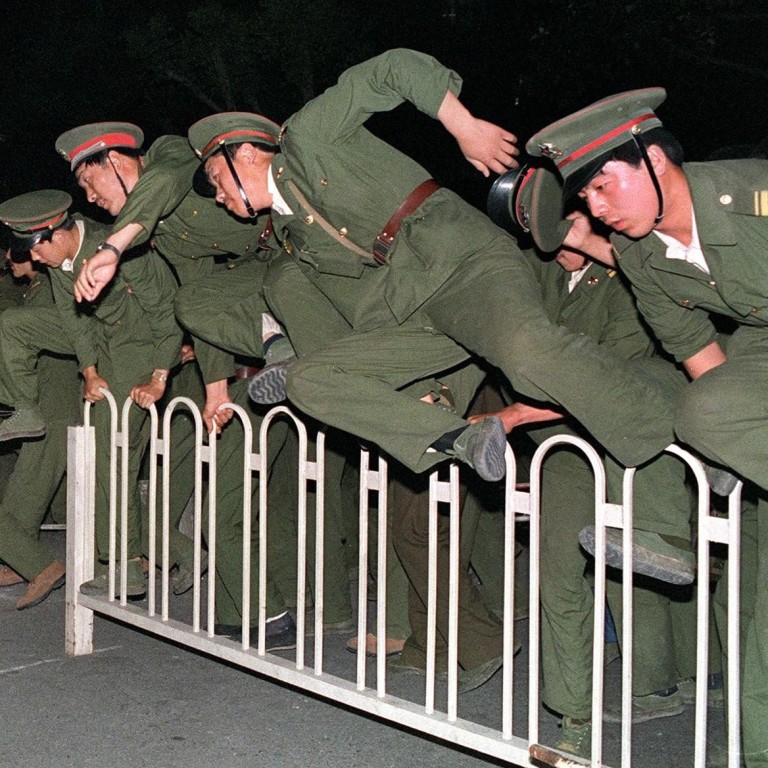
Review | People who cannot forget: the Tiananmen crackdown and lives it ruined – survivors interviewed by poet Liao Yiwu
- Poet Liao Yiwu’s searing account of what happened in Beijing on June 4, 1989, and its lasting impact, doggedly collected from witnesses, demands attention
- Liao and the working-class people and peasants he interviews are unsparing in their criticism of decision-makers, and of ordinary Chinese for their passivity
Bullets and Opium: Real-Life Stories of China After the Tiananmen Square Massacre, by Liao Yiwu (trans. by David Cowhig, Jessie Cowhig and Ross Perlin), Atria/One Signal Publishers, 5 stars
“Years have passed,” poet Liao Yiwu writes in Bullets and Opium: Real-Life Stories of China After the Tiananmen Square Massacre. “The butchers are winning.”
Sceptics and apologists whose hackles may be raised by his use of the word “massacre”, let alone “butchers”, should be the first to read Liao’s new collection of first-person accounts from those who, like himself, saw the crackdown that took place 30 years on June 4, 1989.
Their stories go well beyond those told by the people Liao and his subjects sometimes scathingly call the “June Fourth elite” – the students prominently featured in television coverage, many of whom fled abroad or were treated with relative leniency.
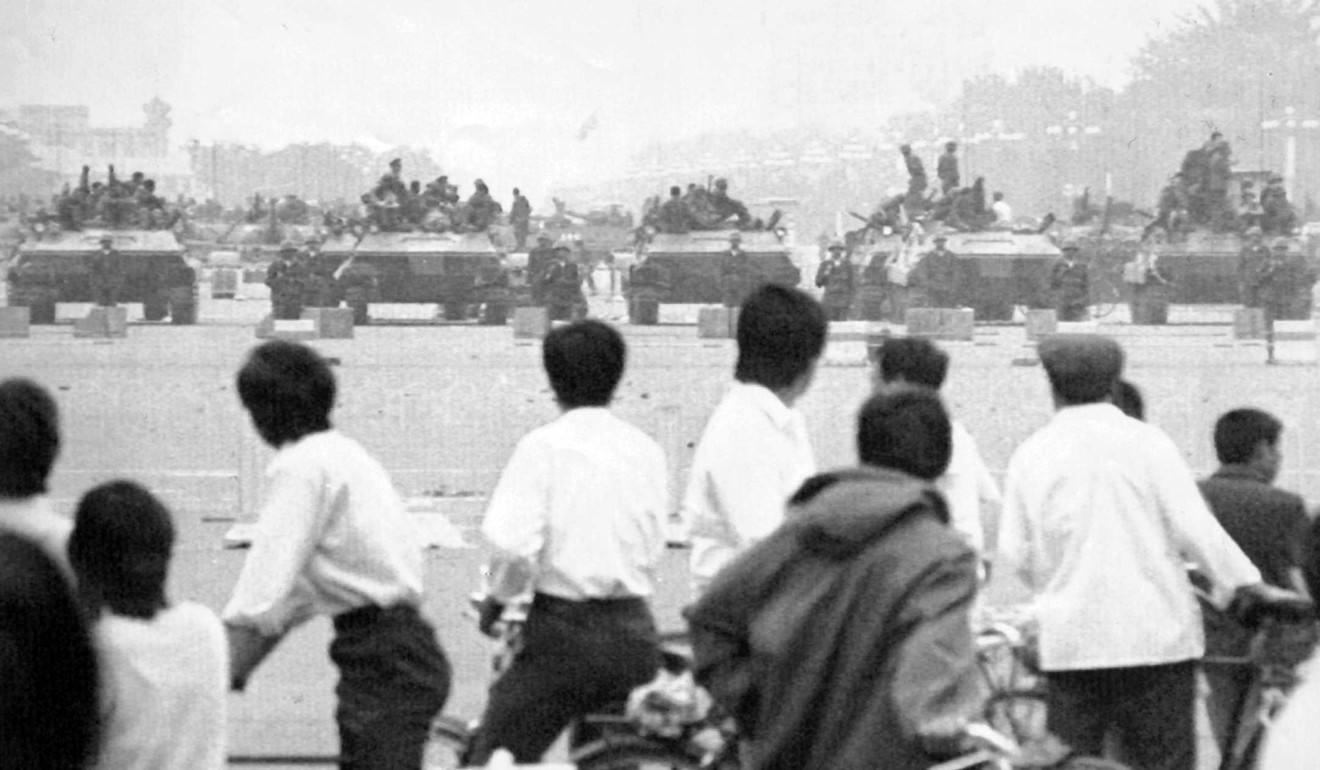
They go well beyond the events of that one night in 1989 to describe lives mangled by a juggernaut state in the decades since.
And they go beyond the borders of Tiananmen Square to many other corners of Beijing and to scenes of violent repression elsewhere in China. This may not be a fat volume, but it’s a wide-ranging one.
Commentators outside mainland China often point out that people there have been made to forget, or have chosen to. But Liao cannot forget.
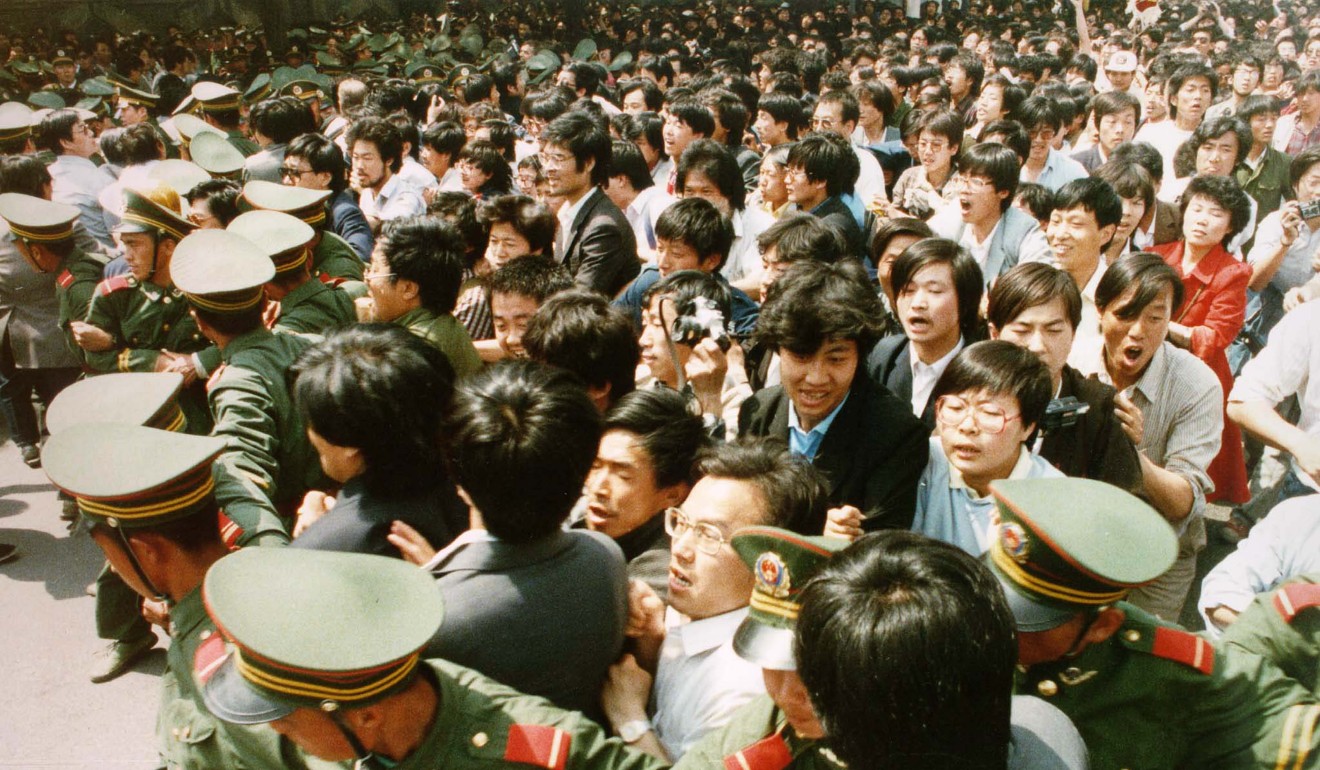
The same can be said for those he interviews in Bullets and Opium, who dream nightly of the atrocities they witnessed, who still suffer physically and mentally from the punishment they received, and whose lives disintegrated both in prison and afterwards when trying to deal with members of the largely indifferent populace into which they were finally released.
June 4, 1989, was a turning point. Before, everyone loved their country; afterward, everyone loved money,
Liao is perhaps best known to English speakers for his 2009 collection of reportage on those at the bottom of Chinese society, The Corpse Walker, which is reminiscent of earlier, Studs Terkel-style oral histories of Chinese lives collected by Sang Ye and Zhang Xinxin.
For Liao, this approach originated in the time he spent sharing a prison cell with two inmates sentenced to death and who demanded he listen to the stories of their crimes. To get these brutalities out of his head he wrote them down.
“Over the years,” he recounts, “I ended up recording and writing the stories of over three hundred people living at the bottom of Chinese society.”
Poetry, drama, tragedy in Liu Heung Shing’s China, USSR photos
The years Liao has spent doggedly circumventing surveillance to extract from wary fellow survivors their accounts of life after the Tiananmen crackdown is reminiscent of Tombstone, former journalist Yang Jisheng’s monumental cataloguing of deaths from famine and brutality during Mao Zedong’s 1958–62 Great Leap Forward campaign.
But where Yang horrifies the reader with the monumental scale of his work and its detailed accounting of the deaths of tens of millions, here it’s the high voltage of Liao’s prose that commands attention.
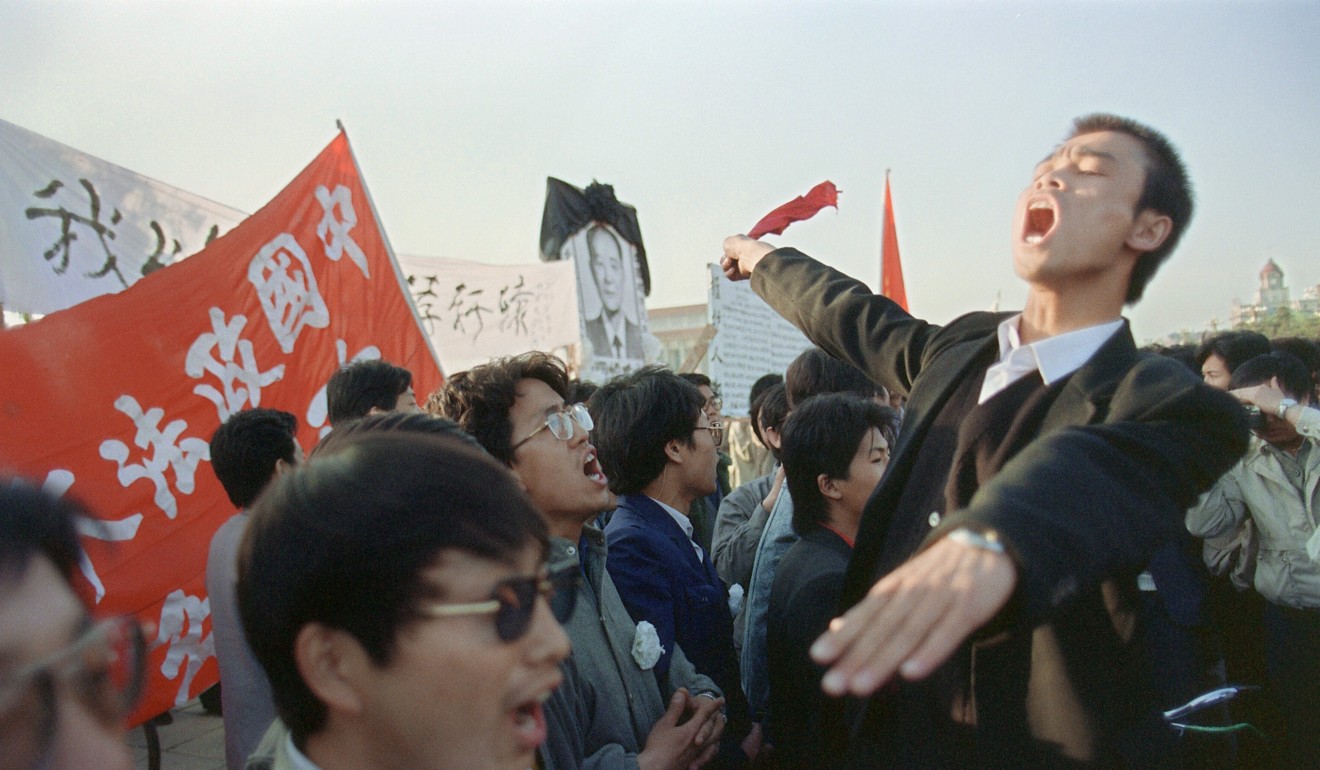
He unsparingly electrocutes those who took the decisions and the torturers who used cattle prods on him and others. Nor do the many ordinary Chinese escape criticism – chastised both for being willing accomplices in the process of forgetting and for shunning those who emerged from decades in prison for their often trivial part in what happened.
“The great massacre of June 4, 1989, was a turning point. Before, everyone loved their country; afterward, everyone loved money,” he writes.
After his release, two former poets turned nightclub managers set out for Liao their view of life in China after leaving prison: “Protesting for democracy won’t get us anywhere. Money will.”
There’s little talk here of the tacit bargain discerned by foreign commentators – that better living standards would be offered in return for political passivity. The act of bargaining requires two parties, and an arrangement in which one side has no free will is not a bargain of any sort.
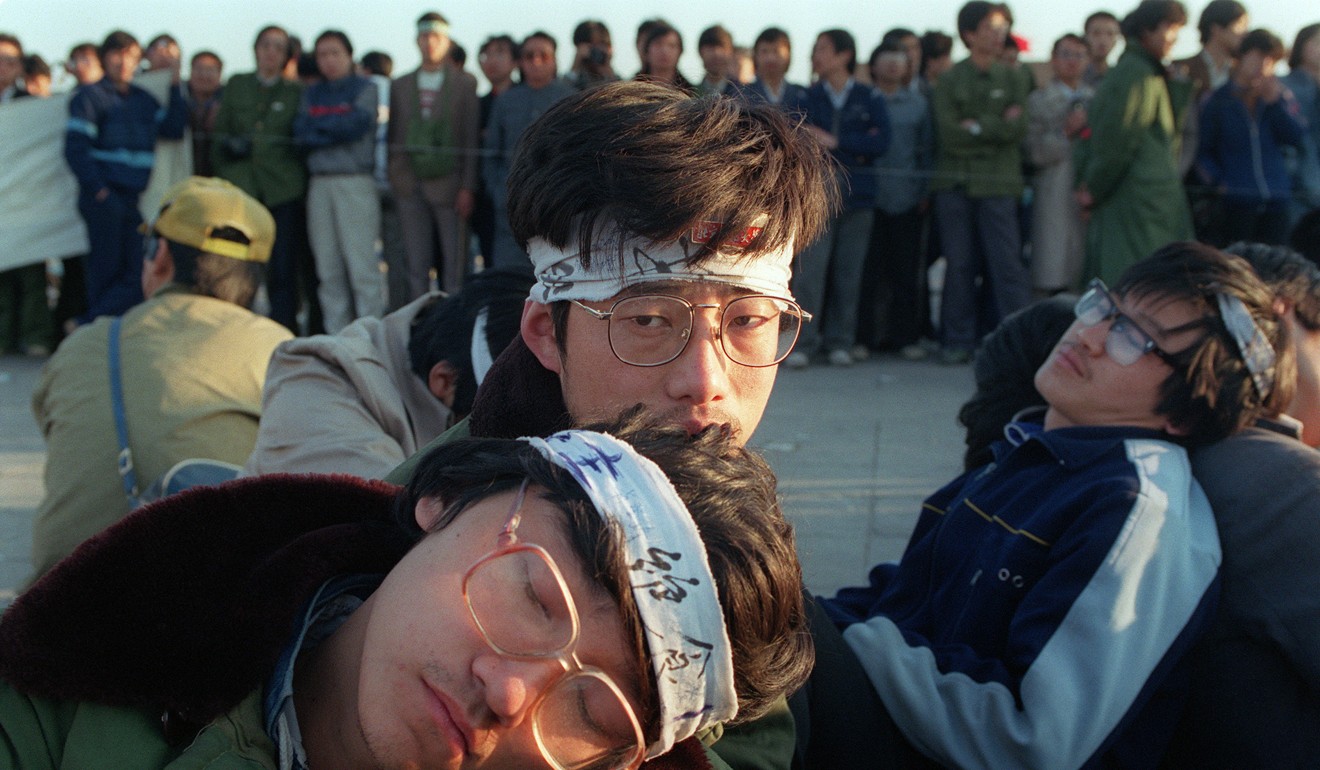
Liao stridently rejects what’s on offer, as do the working-class people and peasants he interviews – people labelled as “thugs” by the Communist Party and treated more brutally in prison than others because of their low social status compared to the “June Fourth elites”.
These “thugs” pour out their stories not in the glare of television lights but over glasses of baijiu in backstreet dives.
One of them, who was 20 years old on that night in June 1989, recalls seeing a small, but angry crowd around the mangled body of a child who had been playing when the troops came.
“What does an eight-year-old child know?” he asks. “A soldier’s bullet flew by and killed him.
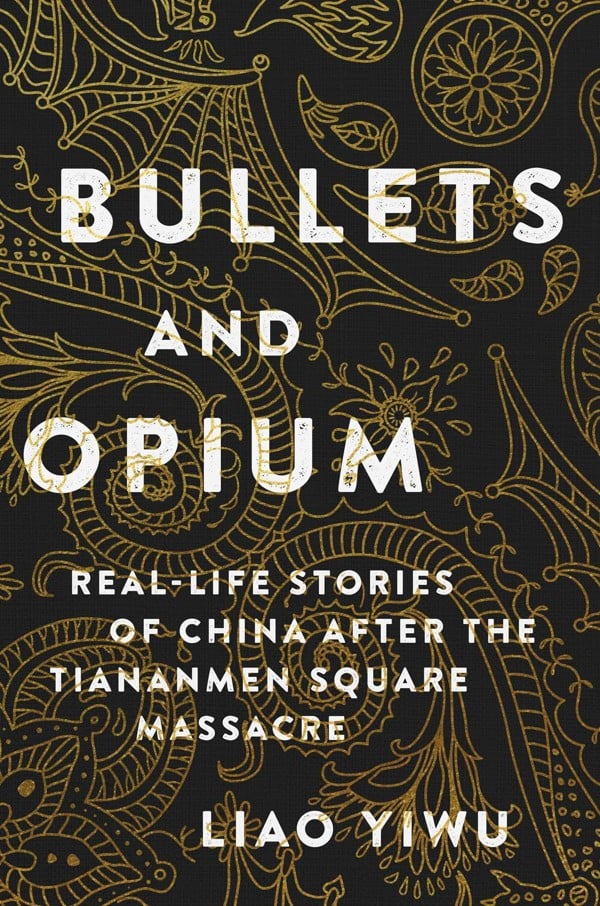
“Suddenly I felt my head explode and I started getting very angry. How could anyone do that? Not even an animal would do that. I really wished then that I had a rifle in my hands, so that if I came across some soldiers, I could wipe them out right on the spot!”
This is what the party fears, that a small spark might once again ignite a massive blaze.
The next day, infuriated by the sight of many dead and of soldiers punching citizens who were trying to delay them, he impulsively set fire to an army truck, and as a result spent 17 years in jail.
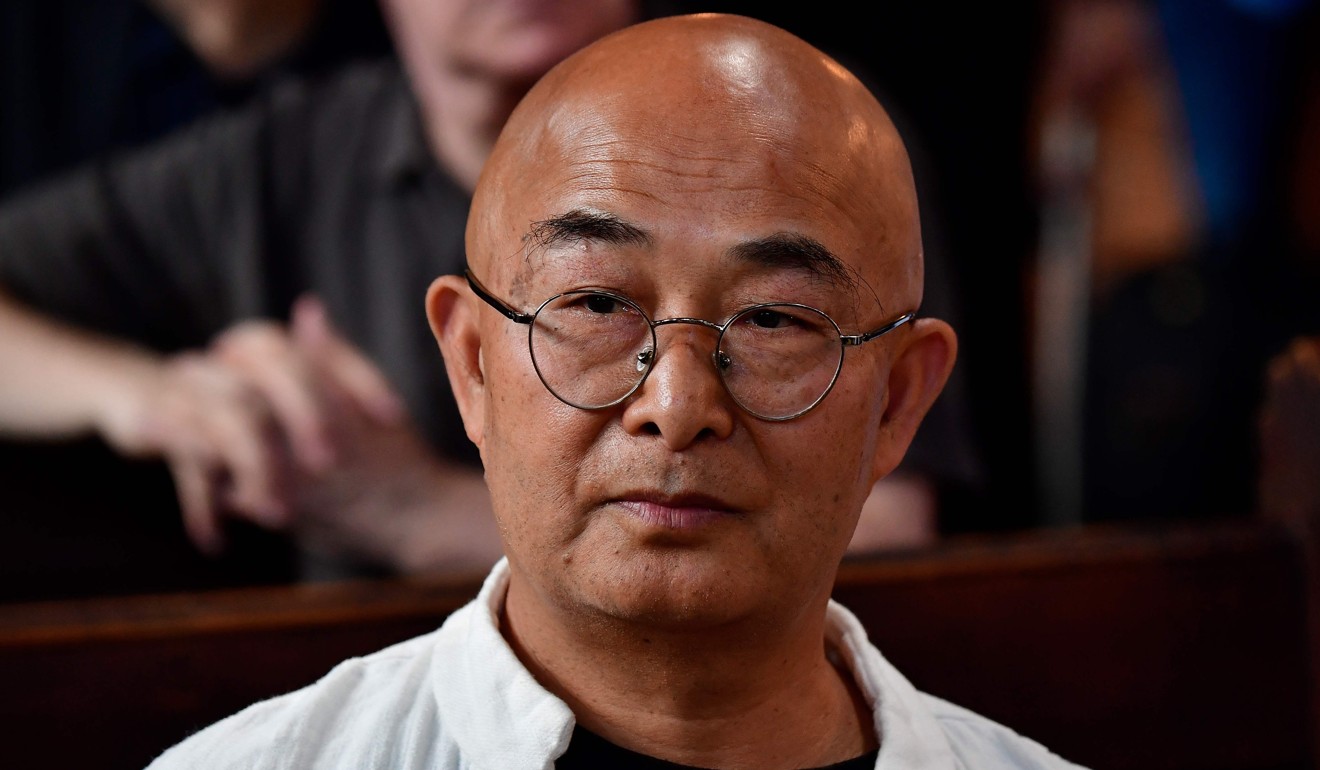
Liao also presents foreigners as being complicit in post-Tiananmen repression: “And the party said to Westerners: Please go ahead and mess up our rivers, skies, food, and underground water resources to your heart’s desire. Come use our cheap labour.
“Make our people work day and night. Reduce them to nothing more than machines on the assembly line.”
By the time the Chinese people are dying of the cancers resulting from such pollution and exploitation, Liao says, officials and profiteers will have already escaped to the West.
“Soon every corner of the world will be full of Chinese swindlers who have abandoned their homeland – a swarm of locusts who will blot out the earth and the sky, bringing disaster with them wherever they go,” he writes.
It’s not surprising Liao’s writing is banned in mainland China, or that much of what he has written has repeatedly vanished before it could be printed anywhere, millions of characters repeatedly lost to searches by the authorities.
“Whether I like it or not,” he says bitterly, “I’m the only writer in China who writes exclusively for the police.”
What Liao and his fellow protesters are saying to the reader is what his condemned cell mates said to him before they were executed. “‘You have to listen,’ they said. ‘You’re our last audience. How can you not listen to us?’”

